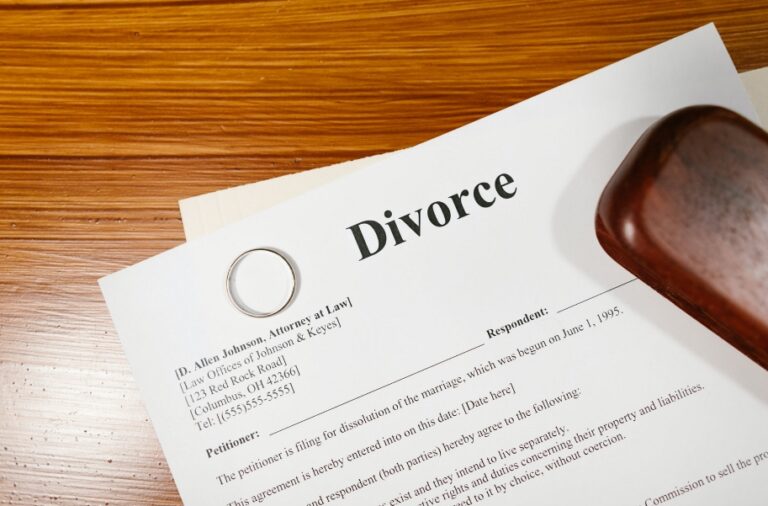Although every divorce is unique, some aspects of all divorces in Georgia are the same as others. Therefore, understanding the rules and procedures governing divorce in your state can assist you in reducing the stress and strain that you will undoubtedly experience as you work your way through the process.
According to the law, after understanding the rules and anticipating, you may continue with more confidence and make better choices that will result in the greatest possible outcome in the long run.

Insight
In 2024, 16,359 marriages were registered, representing a decrease of 29.7 percent compared to the previous year. According to Geostat, the National Statistics Office of Georgia divorces decreased by 31.8 percent to 7,643, a drop of 31.8 percent from the previous year.
Georgia’s divorce laws are founded on the concept of “no blame.” There are many reasons for divorce, but the most frequent one is irreconcilable differences, which means that no one is to blame for the collapse of any marriage. During a divorce proceeding, other reasons such as cruelty or adultery may also be cited. Also, at least one of the parties must have resided in Georgia for at least six months before filing for divorce.
In other terms, each side must demonstrate that the other party was at blame for the marriage’s demise.
A thing to remember: During the Covid-19 lockdown, the divorce processes took longer than usual, and several processes are done online. That includes the documentation process. But now the lockdown has been removed, and things are getting back on track.
How to Plan for a Potential Divorce During Pandemic Times

Divorce Process
A “Petition for Divorce” and a “Final Judgment and Decree of Divorce” are required in Georgia. Therefore, you are referred to as the Petitioner, and your spouse is referred to as the Respondent.
Uncontested Divorce
If you and your spouse can reach an agreement without going to trial, it benefits both of you and the trial system.
Suppose you and your spouse can create a signed written agreement outlining asset distribution, spousal maintenance, and child custody. In that case, the divorce can be completed quickly. www.thehivelaw.com can help you with more information and the detailed process of uncontested divorce.
You and your spouse must appear at a final hearing to affirm your mutual support for the petition. The judge will then sign the Final Judgment and Decree, ending the marriage.
If your divorce is uncontested, you do not need an attorney. The whole procedure should only cost a few hundred dollars.

Contested Divorce
Although a judge decides most divorce cases, in Georgia you or your spouse may seek a jury trial. Additionally, a judge will decide solely on child custody and visitation matters.
A court will make the ultimate decision when couples can’t agree on specific matters like asset division, child custody, or spousal maintenance.
A trial may be as little as a few hours or as long as several days.
You and your spouse will most likely need legal counsel to navigate a contentious divorce trial.
You and your spouse’s attorney may need months to prepare for a trial.
Both parties have the right to discover in a disputed divorce, which entails investigating each spouse’s allegations. This may include interviewing both the parties and other witnesses, as well as conducting document searches and executing subpoenas.
Generally, contentious divorces cost thousands of dollars.
You should submit the petition to the Superior Court Clerk’s Office in the Georgia county where your spouse lives. You may file it in your county if your spouse has relocated out of Georgia. In the petition, you should explain the primary grounds for obtaining a divorce.

Petition
You must pay a fee when you file the Divorce Petition, Final Judgment, and Decree of Divorce. You will be assigned a case number, which should accompany any future inquiries regarding your case.
Notify
To ensure that all parties have an equal chance to submit their case, you must legally notify your spouse of the divorce. This is referred to as Process Serving. In Georgia, this legal notice may be served via Individualized service, Sheriff’s or marshal’s office, Authenticated mail, and Publication. If you cannot find your spouse, the court may permit you to post a notice in a newspaper.
After serving the divorce petition, your spouse will have 30 days to reply.
While divorce is often a painful process, deliberately participating in hostile dialogue with your spouse may significantly complicate it. To keep costs, time commitment, and other difficulties to a minimum, it is highly recommended that you treat the spouse with as much respect and politeness as possible. The more peacefully the divorce is managed, the sooner you and your spouse may go back to living your lives.

Finalizing
If you are involved in a contested divorce, you must attend a trial that may last a morning or several days. Following the trial, both of you must attend a hearing where the judge will issue a Final Judgment and Decree of Divorce, officially finalizing the divorce.
In some uncontested divorces where no children are involved, you may not be required to attend a hearing to finalize the procedure. This is also dependent upon the county and judge. You must have a lawyer file a Motion for Judgment on the Pleadings to avoid a final hearing. You will be issued a Final Judgment and Decree of Divorce through your attorney.
Suppose there are children involved, or you are representing yourselves, you must attend a final hearing, where the judge will confirm your support of the final divorce disposition. The judge will then sign and issue the Final Judgment and Decree of Divorce to both parties.
Tips
Now that you know about the divorce process, here are some tips on preparing yourself for this pandemic and avoid a stressful divorce.
- Ensure the security of your passwords and devices.
- Organize and preserve financial records.
- Make a copy of your text messages.
- Be cautious with what you write.
- Understand your resources.
- Use a calendar to record events that occur on certain dates.
- Apply for a credit card quietly and put away cash.
- Consider your future living arrangements.

Conclusion
Not everyone in a marriage is loyal. There are a few dishonest people everywhere. However, staying in a toxic marriage is not a good idea. It will drain you mentally. Now that you know about getting a divorce in Georgia, you can contact a lawyer or at least consult with a lawyer to stay ahead of all the hassles. Good luck!

